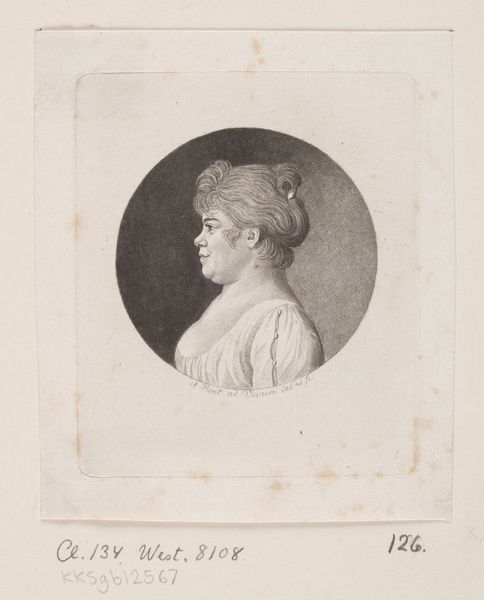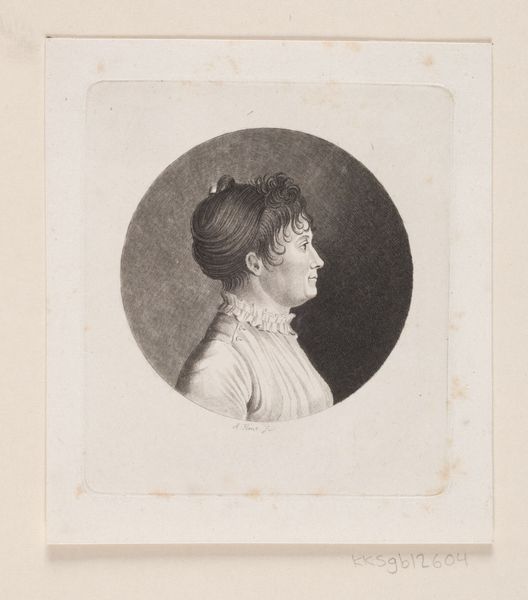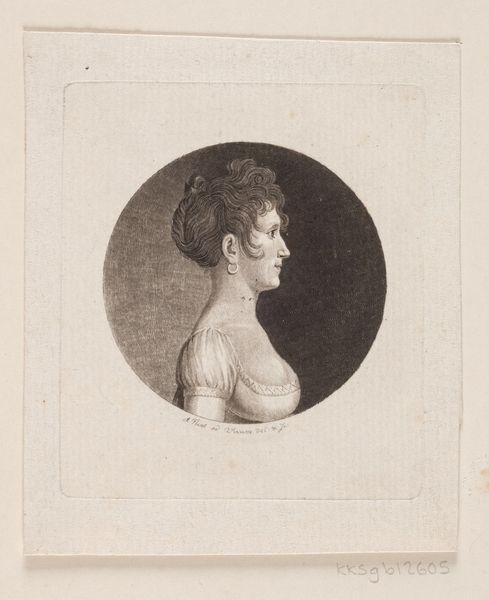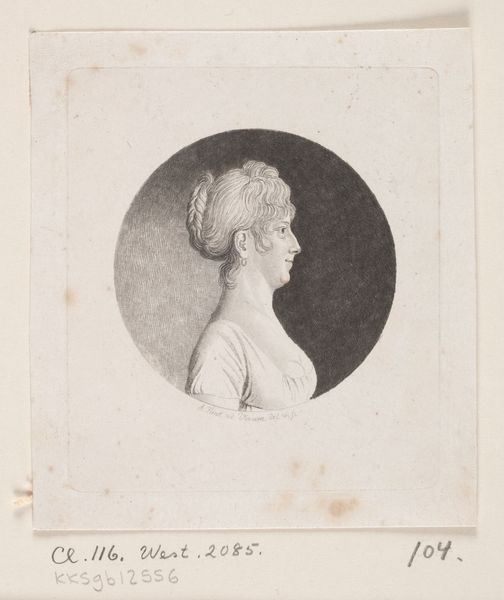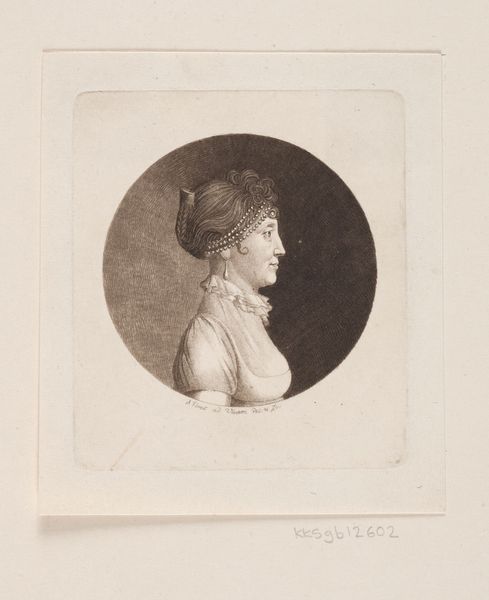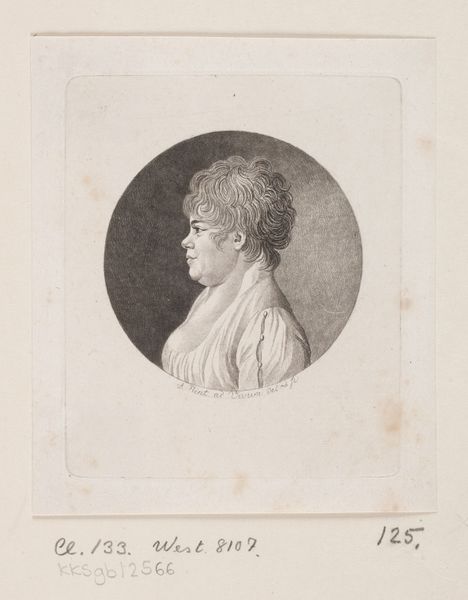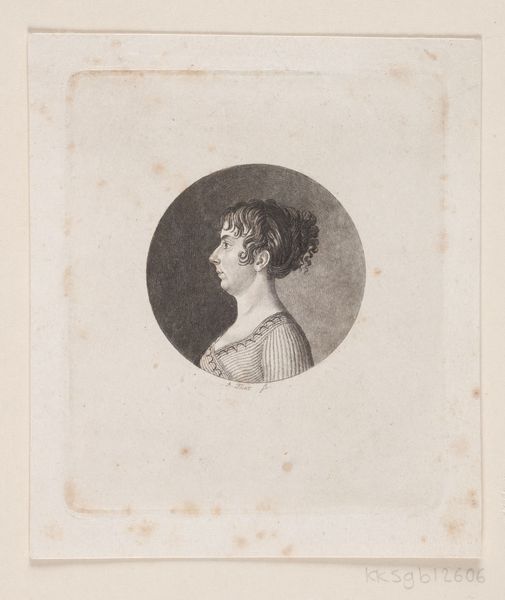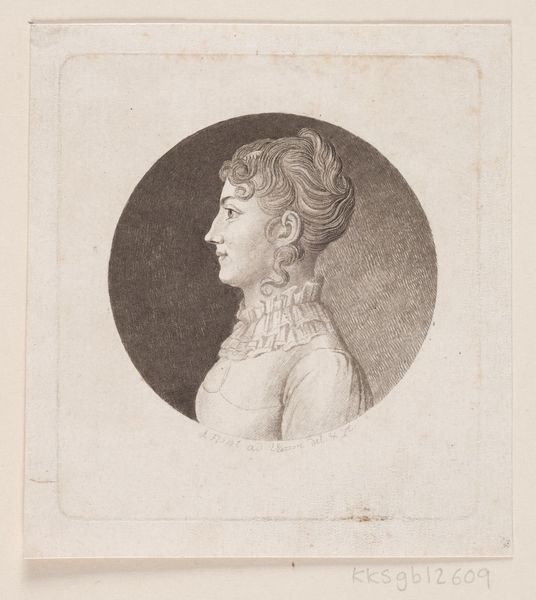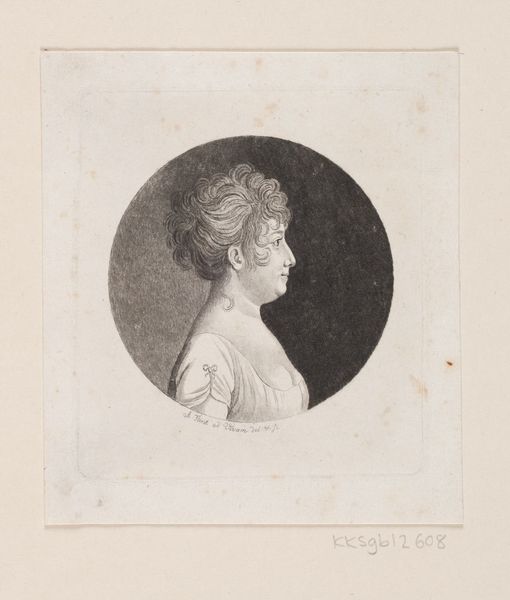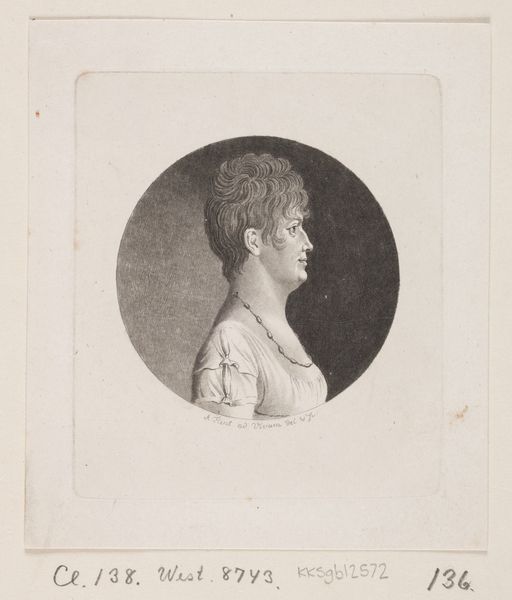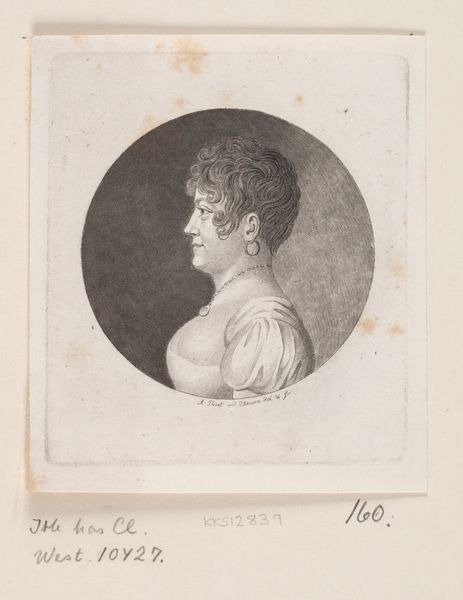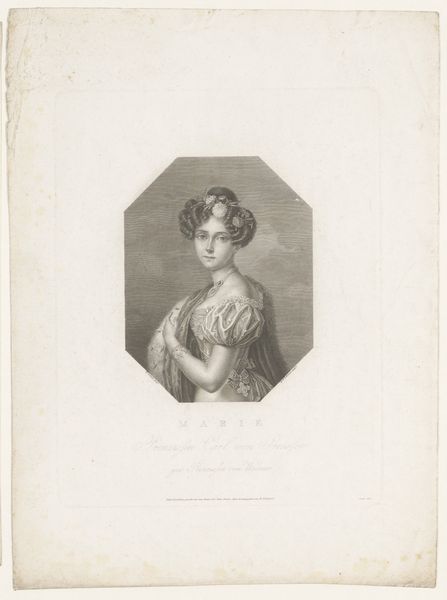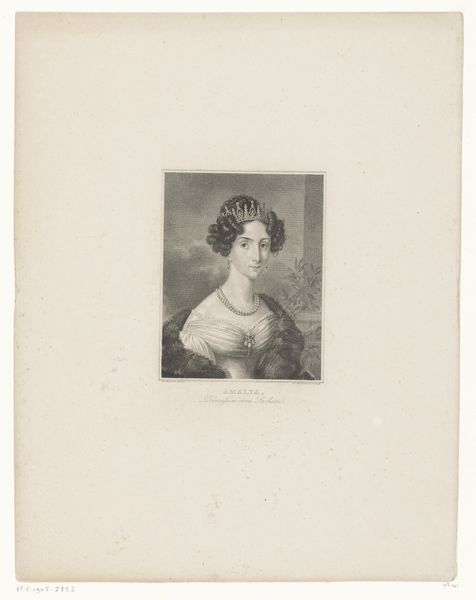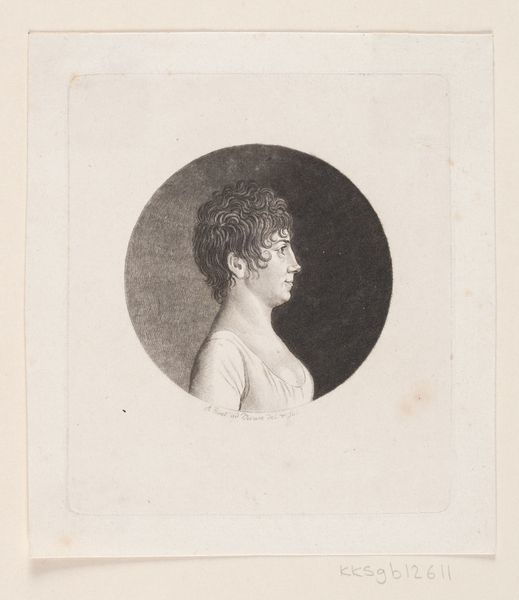
print, engraving
#
portrait
#
neoclacissism
# print
#
engraving
#
realism
Dimensions: 60 mm (None) (billedmaal), 85 mm (height) x 74 mm (width) (plademaal)
Andreas Flint created this engraving of Juditha Giødvad in Denmark sometime between the late 18th and early 19th centuries. It was a tumultuous time in Europe, marked by revolution and shifting social structures. Engravings like this one played a crucial role in constructing and circulating identities. Juditha's neatly styled hair and simple yet elegant dress speaks to middle-class aspirations of modesty and respectability. The piece makes me consider the role of portraiture in shaping perceptions of women during this period. Were these images reflective of reality, or did they set an idealized standard? It is fascinating to consider the power dynamics at play here: a male artist representing a female subject, each with their own social and historical context. How does gender influence the way Juditha is portrayed? What can this image tell us about the lives of women at this time? Ultimately, this engraving offers a fascinating window into the complex interplay of identity, gender, and representation.
Comments
No comments
Be the first to comment and join the conversation on the ultimate creative platform.
